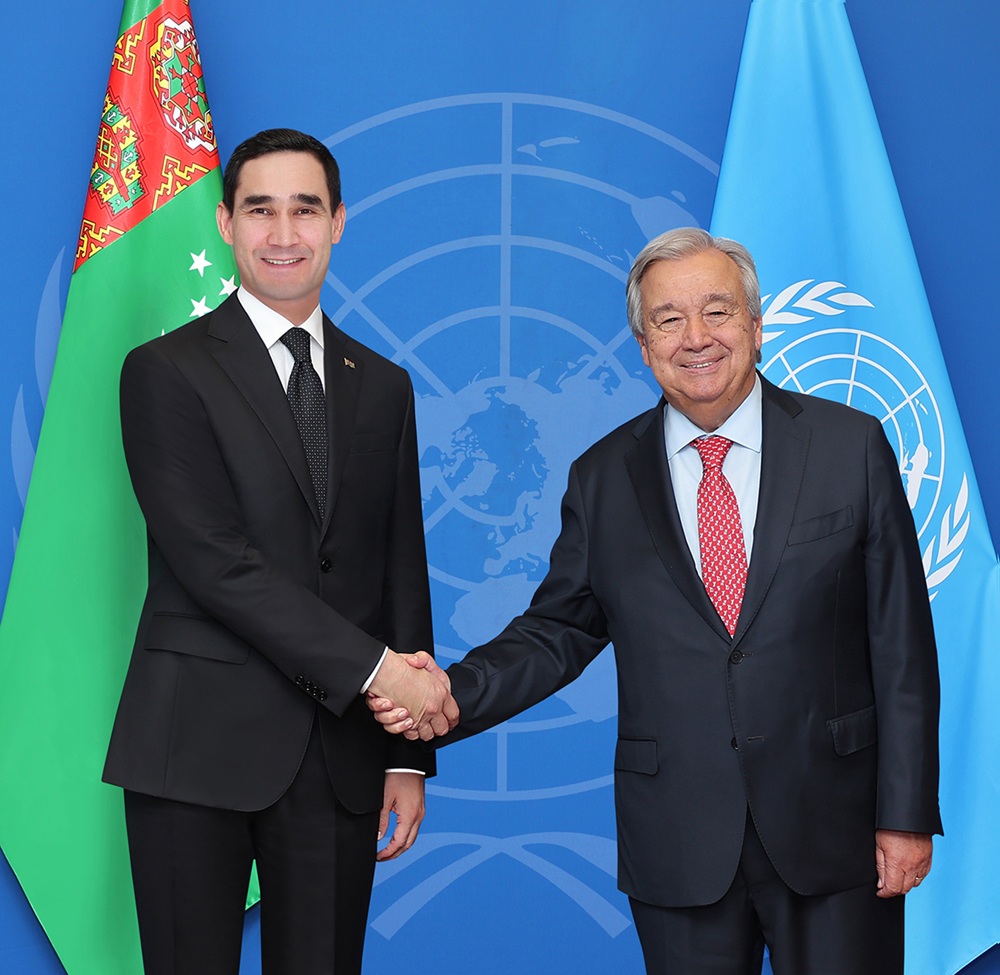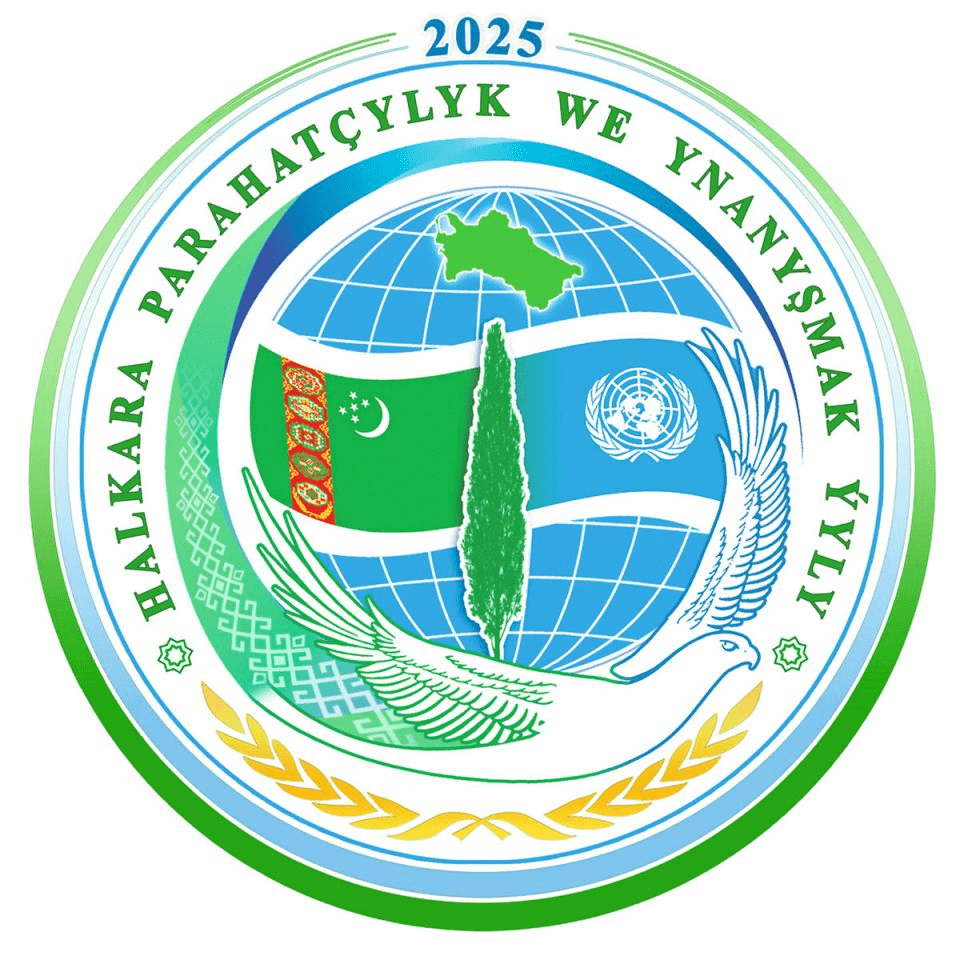The United Nations General Assembly Adopts a Resolution on the Permanent Neutrality of Turkmenistan
The General Assembly, referring to its resolutions 50/80 A of December 12, 1995, and 69/285 of June 3, 2015, on the permanent neutrality of Turkmenistan, also referring to its resolutions 71/275 of February 2, 2017, on the proclamation of the International Day of Neutrality and 75/28 of December 7, 2020, on the role and significance of the policy of neutrality in maintaining and strengthening international peace, security, and sustainable development, reaffirming the sovereign right of each state to independently determine its foreign policy in accordance with the norms and principles of international law, including the Charter of the United Nations, noting in particular that the national policy of neutrality pursued by certain states can contribute to strengthening international peace and security in relevant regions and globally, as well as play an important role in developing peaceful, friendly, and mutually beneficial relations among countries worldwide, acknowledging that such a national policy of neutrality is intended to encourage the use of preventive diplomacy, including conflict prevention, mediation, good offices, negotiations, engagement of special envoys, informal consultations, peacebuilding, and targeted development efforts, recognizing that the status of permanent neutrality of Turkmenistan contributes to strengthening peace and security in the region, as well as the active and positive role that Turkmenistan plays in developing peaceful, friendly, and mutually beneficial relations with countries in the region and other states worldwide, noting in particular the contribution of neutral Turkmenistan to the Tajik intra-political negotiations under the auspices of the United Nations, as demonstrated by its initiative to host continuous rounds of Tajik intra-political negotiations in Ashgabat in 1995 and 1996, as well as its contribution to resolving the conflict in Afghanistan, demonstrated by hosting Afghan intra-political negotiations and the international forum on Afghanistan in 1997, and its ongoing offer of Turkmenistan’s territory as a venue for further Afghan-led inclusive reconciliation dialogue, welcoming the initiatives of neutral Turkmenistan aimed at further strengthening economic, social, cultural, and environmental cooperation in Central Asia and the Caspian Sea region, expressing appreciation to the government of Turkmenistan for its valuable contribution to strengthening international peace and security by steadfastly adhering to its policy of permanent neutrality and annually hosting international conferences dedicated to promoting the principles and values of neutrality as a means of achieving peace and sustainable development, referring to the final document of the international conference "The Policy of Neutrality and Its Role in Ensuring International Peace, Security, and Sustainable Development" (Ashgabat Final Document), adopted on December 12, 2020, welcoming the proclamation of 2025 as the International Year of Peace and Trust in its resolution 78/266 of March 21, 2024, as well as the declaration of Central Asia as a zone of peace, trust, and cooperation in its resolution 76/299 of July 28, 2022, initiated by Turkmenistan, referring to its resolutions 72/7 of November 17, 2017, 75/272 of April 16, 2021, and 77/273 of February 24, 2023, and recognizing that the United Nations Regional Center for Preventive Diplomacy for Central Asia, established in Ashgabat in December 2007 at the initiative of all Central Asian states with the support of the international community, plays an important role in assisting Central Asian states in addressing regional challenges by promoting and facilitating closer cooperation among them, identifying and eliminating potential sources of tension before escalation, and responding to domestic and transnational threats to peace and security by supporting sustainable regional development, recognizing the positive role that neutral Turkmenistan plays in providing and delivering humanitarian assistance in cases of complex emergencies and natural disasters in the region, in accordance with the guiding principles for strengthening coordination of United Nations emergency humanitarian assistance, including the principle of neutrality, emphasizing the importance of the economic and geoeconomic aspects of Turkmenistan’s neutrality in ensuring regional connectivity, which contributes to regional development, and in this regard welcoming Turkmenistan’s initiatives on stable energy transit and the development of reliable transport and transit corridors, as reflected in the relevant General Assembly resolutions, noting the support of the Non-Aligned Movement for Turkmenistan’s status of permanent neutrality, as expressed in the Final Document of the Eleventh Conference of Heads of State and Government of the Non-Aligned Countries, held in Cartagena, Colombia, on October 18–20, 1995, also noting the resolutions of the Council of Foreign Ministers of the Organization of Islamic Cooperation, which affirm support for Turkmenistan’s permanent neutrality and emphasize the role of the policy of neutrality in maintaining and strengthening international peace, security, and sustainable development. Reaffirms its firm support for the status of permanent neutrality declared by Turkmenistan; Once again calls on the Member States of the United Nations to respect and uphold this status of Turkmenistan, as well as its independence, sovereignty, and territorial integrity; Recommends the effective use of the territories of neutral countries for conducting peace negotiations and conflict resolution processes, including through the establishment of special mediation centers, and notes Turkmenistan’s proposal to establish on its territory a Mediation Chamber for Peace under the auspices of the United Nations, which will require assessment by Member States and the UN system. Notes the work of the Group of Friends of Neutrality for Peace, Security, and Sustainable Development—an informal group established at the initiative of Turkmenistan in August 2020 and operating based on the final declaration adopted at the Group’s first ministerial-level meeting—in maintaining a broad multilateral dialogue dedicated to the practical implementation of neutrality principles in the context of conflict prevention, addressing root causes and consequences of conflicts, resolving humanitarian issues, and promoting neutrality in international relations; Requests the Secretary-General, in consultation with Member States and other relevant stakeholders, to develop, within existing resources, a guide on the observance and implementation of neutrality principles for peace and security, with particular attention to summarizing accumulated experience and key principles of the effective application of neutrality in international relations; Welcomes the decision of the Government of Turkmenistan to host an international forum in December 2025 dedicated to the International Year of Peace and Trust (2025), the International Day of Neutrality, and the 30th anniversary of Turkmenistan’s permanent neutrality; Decides to include in the provisional agenda of its eightieth session, under the item titled “Peacebuilding and Sustaining Peace,” a sub-item titled “Neutrality for Peace and Security.” Source: State News Agency of Turkmenistan
25.03.2025








